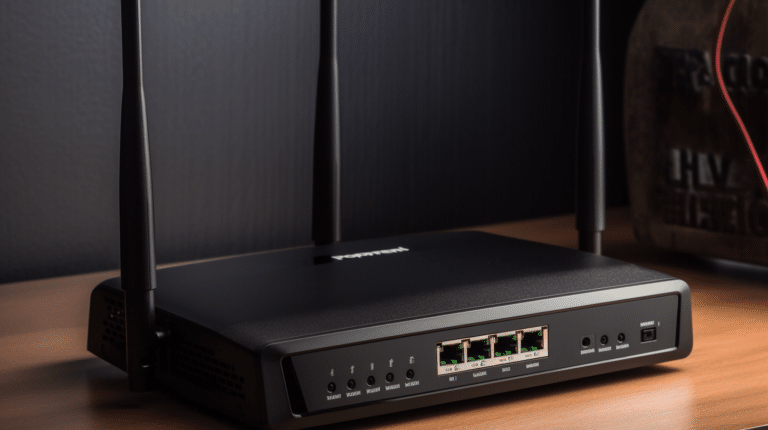In recent years, the use of Virtual Private Networks (VPNs) has significantly increased as individuals and businesses alike seek secure ways to access the internet and protect their data from cyber threats. One of the most popular and trusted VPN protocols is OpenVPN. Its widespread adoption stems from its ability to create a robust and reliable encrypted connection for users.
OpenVPN offers an open-source solution, which means it is continually being developed and reviewed by a community of experts to ensure its security and performance. The protocol is known for providing a high level of security through strong encryption algorithms and is widely compatible across various platforms and devices. However, the question of whether OpenVPN is safe still arises, and understanding the security aspects, performance, and the configuration process can assist in answering this inquiry.
Key Takeaways
- OpenVPN is a popular, open-source VPN protocol known for its strong encryption and compatibility across multiple platforms.
- To ensure the safety of OpenVPN, users should understand its security aspects and proper configuration process.
- Evaluating VPN providers that utilize OpenVPN is crucial to obtaining the most secure and reliable service.
Understanding OpenVPN
Definition and Functionality
OpenVPN is an open-source VPN protocol that uses encryption and authentication to create a secure “tunnel” between the user and the server. It allows you to maintain your privacy and security online, while also giving you the ability to access streaming services from abroad.
OpenVPN Protocol
The OpenVPN protocol offers a strong combination of security, speed, and compatibility, making it a popular choice for both VPN providers and users alike. Its effectiveness lies in its use of the secure SSL/TLS protocol for key exchange, ensuring that your data remains encrypted and your connection is protected from malicious interference. Additionally, OpenVPN is highly configurable, allowing it to be tailored to various levels of security and performance requirements.
Open-Source Nature
The open-source nature of OpenVPN is one of its greatest strengths. As an open-source protocol, it benefits from regular scrutiny and updates from a community of developers, ensuring that it continues to evolve and maintain its security standards. This focus on transparency and collaborative improvement helps to keep OpenVPN ahead of potential vulnerabilities and exploits, making it a reliable and trustworthy choice for safeguarding your online privacy.
Security Aspects
Encryption and Authentication
OpenVPN is known for its robust encryption and authentication methods. At its core, it uses a custom model involving Secure Sockets Layer (SSL) and Transport Layer Security (TLS) protocols. These protocols allow OpenVPN to utilize public-key cryptography. Furthermore, the protocol employs OpenSSL to encrypt data, ensuring a high level of security.
Authentication in OpenVPN is equally robust. It supports several options, including pre-shared keys, certificate-based authentication, and username/password authentication. This flexibility allows users to choose their preferred authentication method based on their needs and security requirements.
Firewall Integration
Another security feature of OpenVPN is its seamless integration with existing firewalls. This compatibility ensures a secure connection between the VPN server and client while still allowing network traffic to be managed by the firewall. By working hand-in-hand with firewalls, OpenVPN can help protect against potential threats and unauthorized access attempts.
Kill Switch
A crucial security aspect of any VPN is the implementation of a “kill switch.” OpenVPN typically has a kill switch feature that cuts off a user’s internet connection if the VPN connection drops. This ensures that no data is accidentally transmitted over an unsecured connection, thereby maintaining user privacy and security. While OpenVPN itself may not have a built-in kill switch, many VPN services using OpenVPN integrate this feature into their clients, providing an added layer of protection for users.
In conclusion, OpenVPN has established itself as a safe and secure VPN protocol with its robust encryption, flexible authentication options, firewall integration, and support for essential features like a kill switch.
Performance of OpenVPN
Speed and Usage
OpenVPN is known for its strong security features, which makes it highly reliable for maintaining privacy and data protection. However, when it comes to speed, OpenVPN might be slightly slower compared to other VPN protocols due to its complex encryption methods. Nonetheless, it’s important to consider that various factors can impact the performance, such as the server location, user’s proximity to the server, and the available bandwidth.
For everyday browsing, OpenVPN offers sufficient speed and stable connections. Users often find this VPN protocol suitable for a range of online activities, including file sharing and private communications. Bear in mind that the encryption level and the specific settings selected by the user can also influence the overall performance of OpenVPN.
Streaming and Gaming
When it comes to streaming and gaming, the connection speed and stability are critical for an enjoyable experience. OpenVPN can provide a secure and consistent connection, preventing potential throttling by ISPs and allowing access to geo-restricted content. As a result, it’s widely favored for streaming popular platforms such as Netflix or Hulu.
For gaming, low latency and quick response times are essential. OpenVPN may not be the fastest VPN protocol in terms of ping; however, its reliability can compensate for any slight speed reductions. Gamers can often benefit from the added security against DDoS attacks and potential performance advantages when playing on servers located far away from the user’s physical location.
In summary, while OpenVPN might not be the absolute fastest choice for certain activities, its combination of security, stability, and flexibility make it a popular choice for users seeking protection, privacy, and access to restricted content.
OpenVPN and Various Platforms
OpenVPN is an incredibly popular and trusted VPN protocol that provides secure connections across various platforms. In this section, we will explore how OpenVPN functions on Windows, Mac, Android, and iOS devices.
OpenVPN on Windows
For Windows users, setting up OpenVPN is relatively simple, as the protocol is natively supported by the operating system. Users can download the official OpenVPN client, which provides a user-friendly interface for configuration and management of VPN connections. Users can also opt for third-party VPN clients that support OpenVPN, allowing for more flexibility and customization options. The protocol is known for its stability and high level of security on the Windows platform.
OpenVPN on Mac
Mac users can also enjoy the benefits of OpenVPN, although the setup process may be slightly more involved compared to Windows. Mac users will need to download a compatible VPN client, such as Tunnelblick or Viscosity, to manage their OpenVPN connections. Once the VPN client is installed, users can import the configuration files provided by their VPN service to establish secure connections. OpenVPN offers strong security features and performance on Mac devices, making it a popular choice among users.
OpenVPN on Android and iOS
OpenVPN is available on both Android and iOS devices. On Android, users can download the OpenVPN Connect app from the Google Play Store. This app offers a simple interface for importing and managing VPN connections. Users will need to obtain the configuration files from their VPN service provider to set up the VPN.
On iOS devices, the situation is similar. Users can download the OpenVPN Connect app from the App Store and import the configuration files provided by their VPN service. This app allows for easy management and configuration of VPN connections, with an emphasis on security and reliability.
In summary, the OpenVPN protocol is a safe and secure option for users across various platforms, including Windows, Mac, Android, and iOS. Its compatibility with multiple operating systems, high level of security, and performance make it a top choice for users looking for a reliable VPN solution.
Compatibility with Other Protocols
OpenVPN is a popular and widely-used VPN protocol, but how does it compare to other VPN protocols like WireGuard, IKEv2, L2TP, and SSTP? In this section, we will explore their differences and similarities.
Comparison with WireGuard
WireGuard is a relatively new VPN protocol that has gained popularity for its simplicity, performance, and modern cryptography. It uses a smaller codebase, which makes it easier to audit and maintain. However, OpenVPN offers more configuration options and has a larger user community, making it easier to find support and solutions to common issues.
- Performance: WireGuard is known for its high-speed connections and lower latency, which can be beneficial for streaming and gaming. OpenVPN, while reliable, may have slower connection speeds due to its complex configuration options.
- Cryptography: Both OpenVPN and WireGuard use industry-standard cryptography, with OpenVPN utilizing OpenSSL and WireGuard employing Noise.
- Cross-platform support: OpenVPN is compatible with a wide range of platforms, while WireGuard has limited support on some operating systems, such as older versions of Windows.
Comparison with IKEv2 and L2TP
IKEv2 (Internet Key Exchange version 2) and L2TP (Layer 2 Tunneling Protocol) are both VPN protocols often used in combination (L2TP/IPsec) for secure communication.
- Integration: IKEv2 and L2TP are often integrated with IPsec, providing military-grade encryption. OpenVPN can provide similar levels of security but relies on SSL/TLS for key exchange.
- Mobility: IKEv2 is known for its ability to reconnect swiftly when internet connections are interrupted, making it an ideal choice for mobile devices. OpenVPN may suffer from slower reconnection times.
- Firewall compatibility: OpenVPN operates over TCP and UDP, making it more likely to bypass firewalls compared to L2TP/IPsec, which can be easily blocked by some firewalls.
- Platform support: While OpenVPN has broad platform support, L2TP/IPsec and IKEv2 are often built into many operating systems, making their setup relatively easy.
Comparison with SSTP
SSTP (Secure Socket Tunneling Protocol) is a VPN protocol developed by Microsoft and primarily used on Windows platforms.
- Encryption: Both OpenVPN and SSTP utilize SSL/TLS for encryption and authentication. By supporting strong encryption algorithms, both protocols offer a high level of security.
- Platform support: SSTP is mainly built into Windows platforms, whereas OpenVPN is universally compatible with a wide range of platforms, including Windows, macOS, Linux, and mobile devices.
- Firewall compatibility: Like OpenVPN, SSTP is successful in bypassing firewalls, as it operates over the HTTPS port (443), which is difficult to block without affecting web browsing.
In summary, OpenVPN is a versatile and secure VPN protocol that is comparable to other protocols in terms of encryption and firewall compatibility. However, it may fall short in areas such as connection speed and reconnection times compared to newer protocols like WireGuard and IKEv2. The choice of VPN protocol ultimately depends on individual needs, preferences, and the specific use case.
Privacy Issues
No-Logs Policy
A crucial aspect of OpenVPN’s privacy protection is its no-logs policy. This means that the VPN service does not keep any records of your browsing data, ensuring that your online activities remain private. Many VPN providers, including OpenVPN, emphasize their commitment to a no-logs policy to enhance user confidence in their services’ privacy safeguards 1. In general, a no-logs policy reinforces the overall security of a VPN service while guaranteeing user privacy.
However, it is essential to remember that not all VPN providers adhere to a strict no-logs policy. Therefore, when choosing a VPN service, it’s crucial to research and pick one that genuinely respects and implements a no-logs policy.
IP Address Protection
Another critical privacy feature offered by OpenVPN is IP address protection. By masking your actual IP address, OpenVPN helps keep your online identity and location concealed from potential threats, such as hackers and malicious websites. This protection results in increased security and reduced exposure to digital risks 2.
Most VPN providers, including OpenVPN, achieve IP address protection by routing your internet traffic through a secure encrypted VPN tunnel to the VPN provider’s server. This process effectively hides your original IP address and replaces it with the VPN server’s address 3.
It is essential to note that while OpenVPN is widely regarded as a reliable and safe choice for VPN services, it is crucial to choose a trusted and transparent provider that implements the necessary privacy and security features to ensure your online activities remain protected and private.
Configuring OpenVPN
Installation and Setup
Configuring OpenVPN requires a combination of software installation and setup procedures. First, you need to install the OpenVPN server on your chosen device or server. This includes selecting suitable encryption tools and generating the necessary keys to establish secure communication channels.
Once the server is installed, you’ll need to create configuration files for both the server and clients. These files dictate how OpenVPN will operate on each end, including defining encryption settings and other important parameters. During this step, it’s crucial to be precise with your configuration for optimal security.
Problem Solving and Bugs
While configuring OpenVPN, you may encounter issues or bugs that need to be addressed. One common problem is mistyping or using the wrong code in your configuration files. Double-checking your syntax and settings will help mitigate this risk. Furthermore, it’s essential to consult the official documentation for guidance on best practices to avoid potential vulnerabilities.
Another aspect of problem-solving involves addressing complex situations that may arise in specific use cases, such as utilizing OpenVPN behind NAT or on multi-WAN systems. In these cases, detailed knowledge of networking and OpenVPN becomes invaluable.
In conclusion, configuring OpenVPN can vary in complexity depending on your particular setup. However, by following proper installation and setup procedures, alongside consulting official guidance and addressing any problems, OpenVPN can indeed provide a safe and secure VPN solution.
Assessment of VPN Providers
Comparison with NordVPN
NordVPN is known for its excellent security features and its ability to bypass geo-restrictions. Regarding OpenVPN, NordVPN provides support for this widely-used protocol, considered to be secure and reliable. NordVPN also offers other protocol options such as IKEv2/IPsec and their own NordLynx, which is based on WireGuard technology.
Some key factors to consider when comparing NordVPN with other VPN providers:
- Price: NordVPN offers competitive pricing, with plans starting at $3.71 per month for a two-year subscription.
- Servers: NordVPN has a large network of over 5,000 servers in 59 countries, offering a wide range of connection options.
- Speed: NordVPN consistently performs well in speed tests, making it a suitable choice for streaming and downloading.
- Reliable: NordVPN is known for its reliability, with a strict no-logs policy, 24/7 customer support, and a 30-day money-back guarantee.
Comparison with ExpressVPN
ExpressVPN is another popular VPN provider, offering robust security features, fast connection speeds, and extensive server coverage. Like NordVPN, ExpressVPN supports the OpenVPN protocol, as well as alternative protocols such as IKEv2/IPsec and L2TP/IPsec.
Key factors to consider when comparing ExpressVPN with other VPN providers:
- Price: ExpressVPN’s plans are slightly more expensive than NordVPN’s, starting at $6.67 per month for a one-year subscription with an additional three months free.
- Servers: ExpressVPN offers over 3,000 servers across 94 countries, providing a wide range of connection options.
- Speed: ExpressVPN is often cited for its fast connection speeds, making it an ideal choice for streaming and downloading.
- Reliable: ExpressVPN is a reliable choice, with a no-logs policy, 24/7 customer support, and a 30-day money-back guarantee.
Final Thoughts
OpenVPN is a widely-used, industry-standard protocol for VPN connections. It offers a secure and private browsing experience on various devices, making it a popular choice among VPN users and providers alike. With its encrypted VPN tunnel and a reliable VPN provider’s OpenVPN server, your internet traffic is kept safe from prying eyes (source).
Several VPN providers offer OpenVPN as an option, so users have plenty of choices in selecting a suitable service. One notable aspect of OpenVPN is its strong security features, which can be attributed to its open-source nature. This allows the community to continuously enhance and update the protocol, addressing any potential vulnerabilities that may arise (source).
However, OpenVPN may have some drawbacks in terms of speed, when compared to more modern, streamlined protocols. Although some improvements have been made by providers like ExpressVPN, users who prioritize faster connections may opt for a different protocol (source).
It’s essential for users to understand that OpenVPN isn’t a VPN service provider itself, but a protocol offered by such providers. While it remains a trusted and tested option for many, emerging protocols like WireGuard show promise for delivering lighter, faster, and more resource-efficient connections. However, WireGuard is still in its developmental stages, with most VPN providers currently testing its capabilities before wider adoption (source).
Frequently Asked Questions
Are there any security risks with OpenVPN?
OpenVPN is considered a secure VPN protocol by design and is trusted by many due to its use of OpenSSL for encryption. However, like any software or service, there can be potential security risks when using a flawed or outdated implementation. It’s recommended to keep your OpenVPN client up-to-date and use a reputable VPN service provider.
How does OpenVPN compare to other VPN protocols?
OpenVPN is known for its strong security and flexibility, allowing it to work on various platforms and networks. It supports both Transmission Control Protocol (TCP) and User Datagram Protocol (UDP), enabling an optimal balance between speed and reliability. In comparison to other protocols like PPTP and L2TP/IPSec, OpenVPN is generally considered more secure and stable.
Is OpenVPN suitable for gaming?
Using OpenVPN for gaming can provide an additional layer of security, but its impact on performance can vary. It may slightly increase latency and reduce network speeds, which is sometimes noticeable in online gaming. However, this effect depends on factors like server distance, network quality, and the specific VPN service provider.
Does OpenVPN maintain user logs?
OpenVPN as a protocol does not inherently maintain user logs. However, the logging practices of each VPN service provider can vary. It is essential to read the privacy policy of your chosen VPN service to understand what data they collect and store, and for how long.
Can the OpenVPN client be trusted?
The OpenVPN client software maintained by the OpenVPN project is considered trustworthy, given its long history and active open-source development. However, there can be variations in the clients provided by VPN service providers, some of which may include additional features or bundled software. It’s essential to evaluate the trustworthiness of the VPN service provider when choosing a client.
How does OpenVPN perform against alternatives like WireGuard?
OpenVPN has been a popular choice for many years, but newer protocols like WireGuard are gaining traction for their simplicity, performance, and security benefits. WireGuard is designed for ease of implementation and is faster due to its use of modern cryptographic techniques. However, it may not be as compatible with older systems or networks that rely on certain features found only in OpenVPN. Ultimately, the choice between OpenVPN and WireGuard will depend on the user’s needs, preferences, and the specific VPN service provider.






